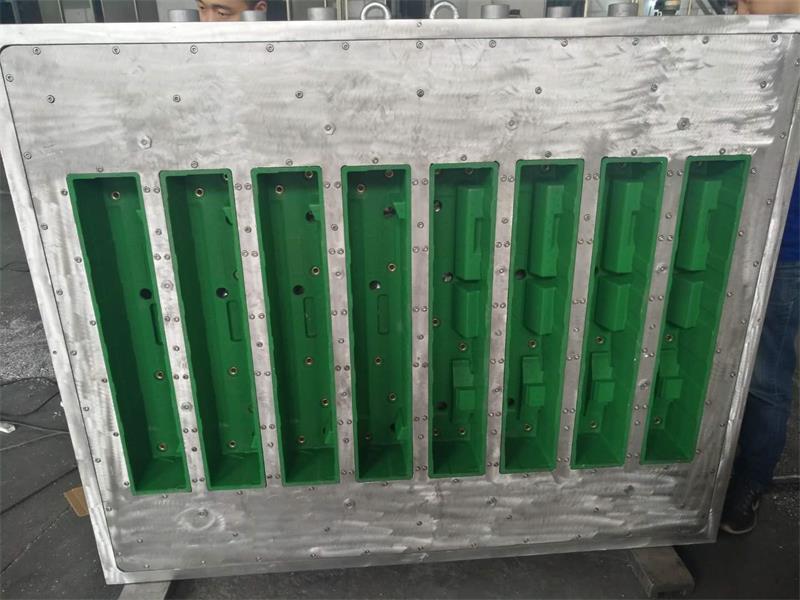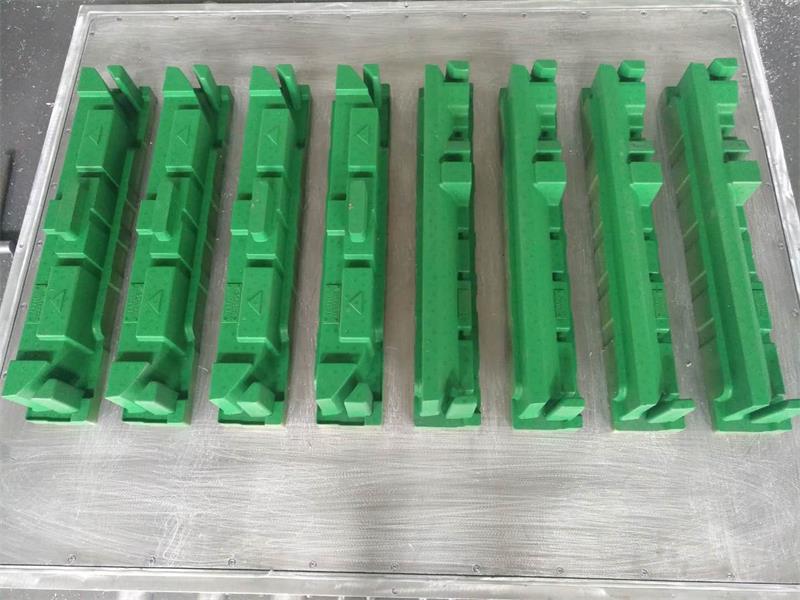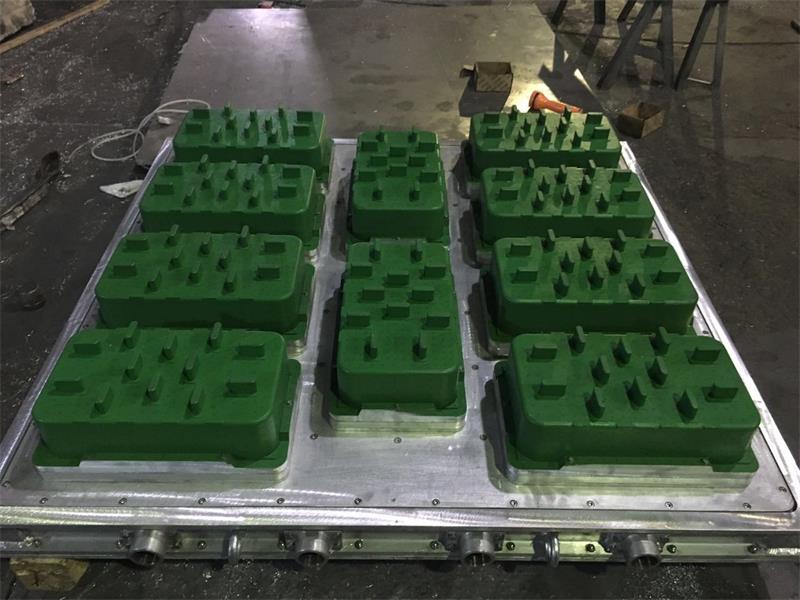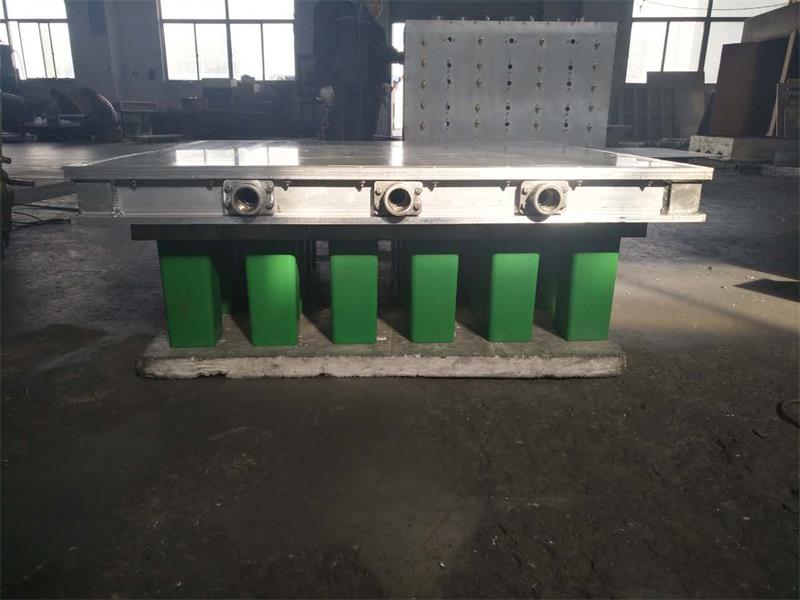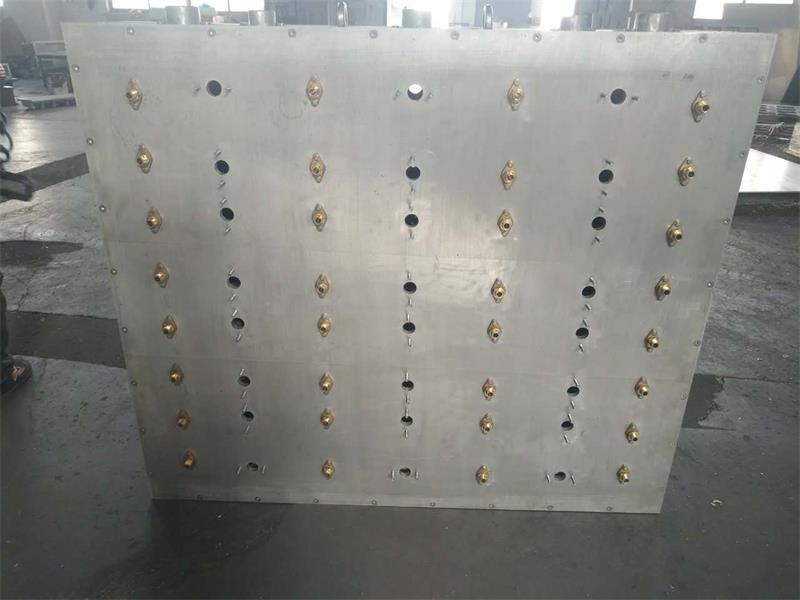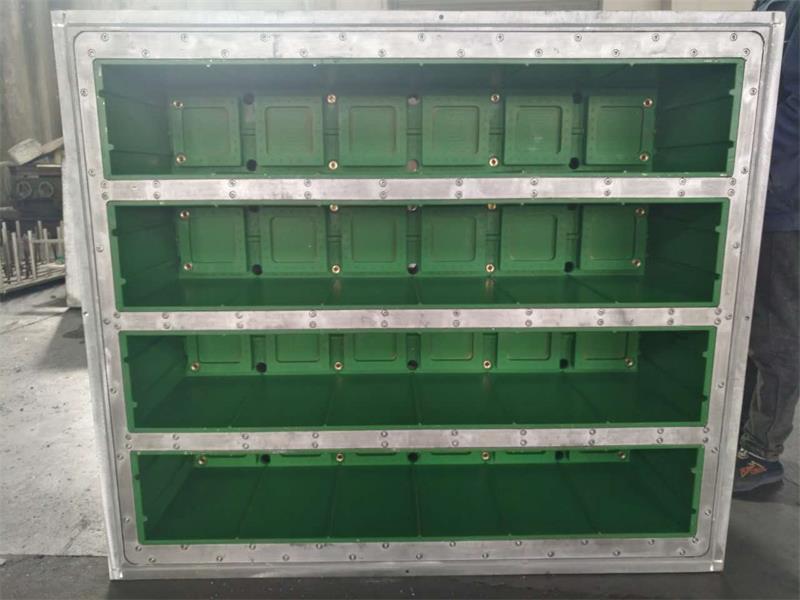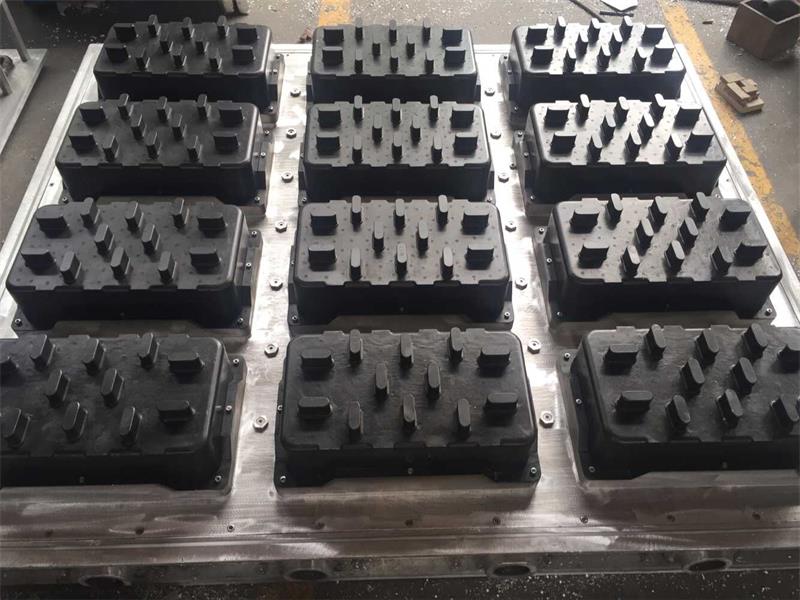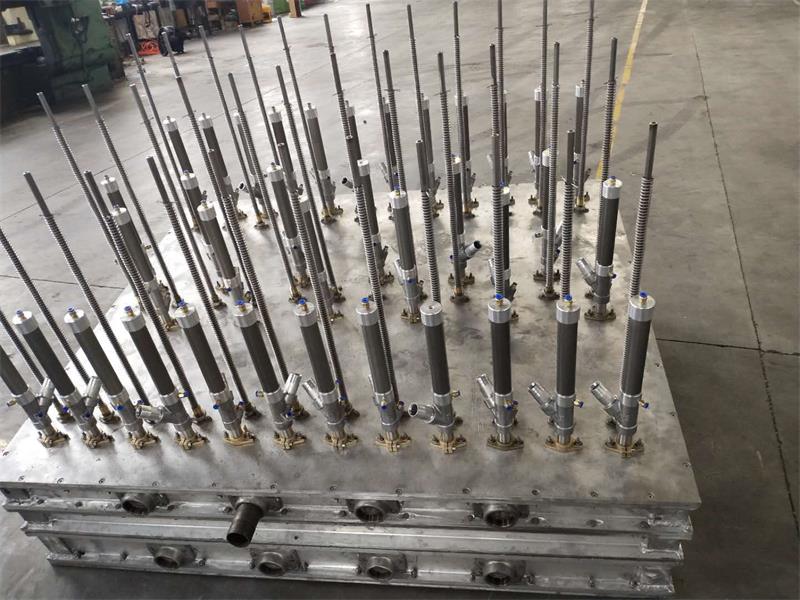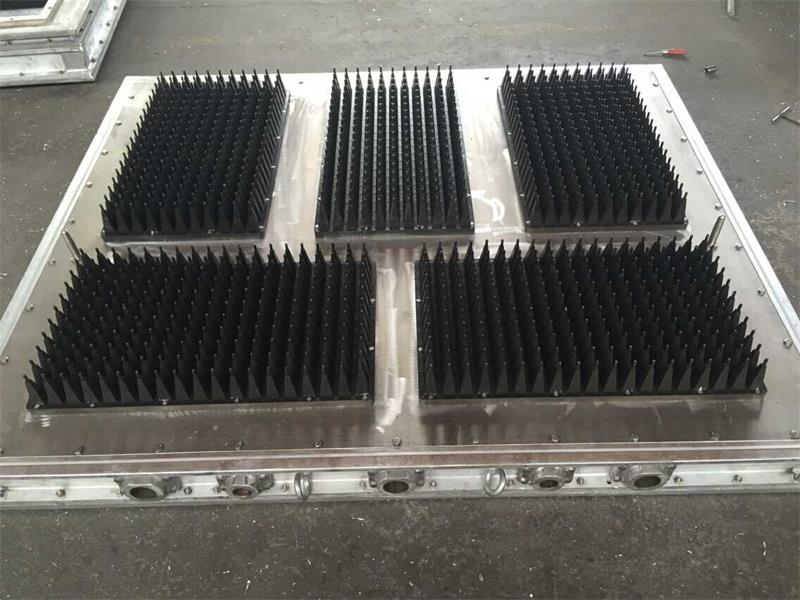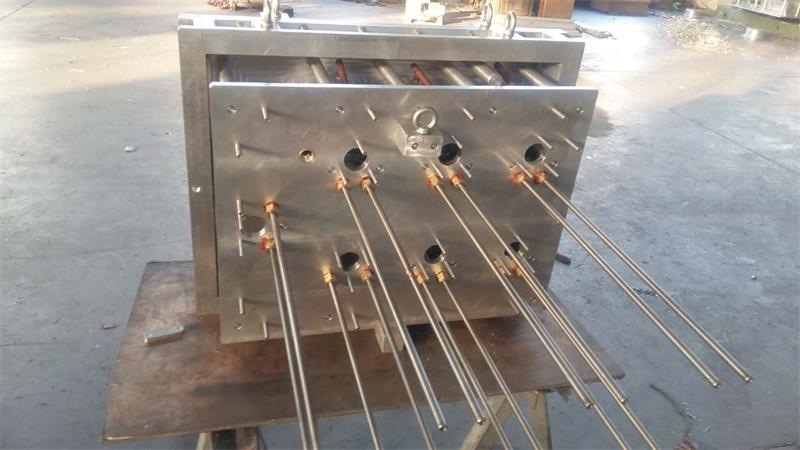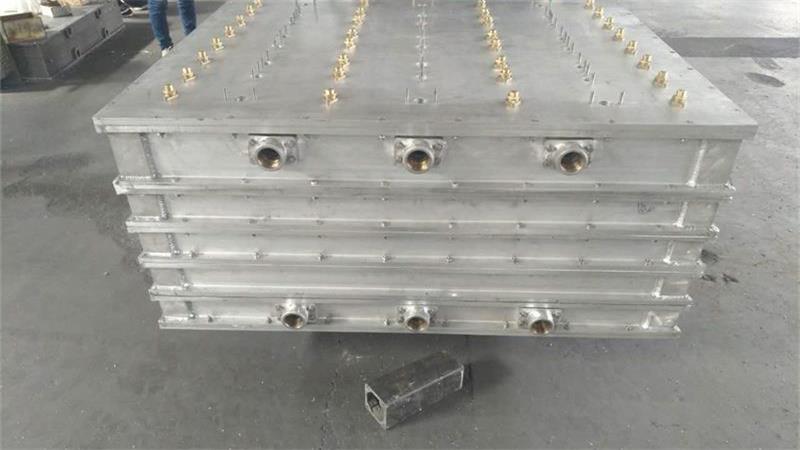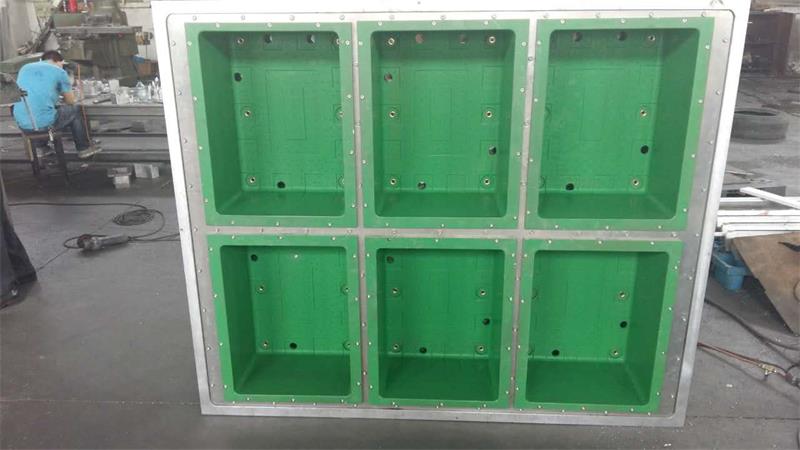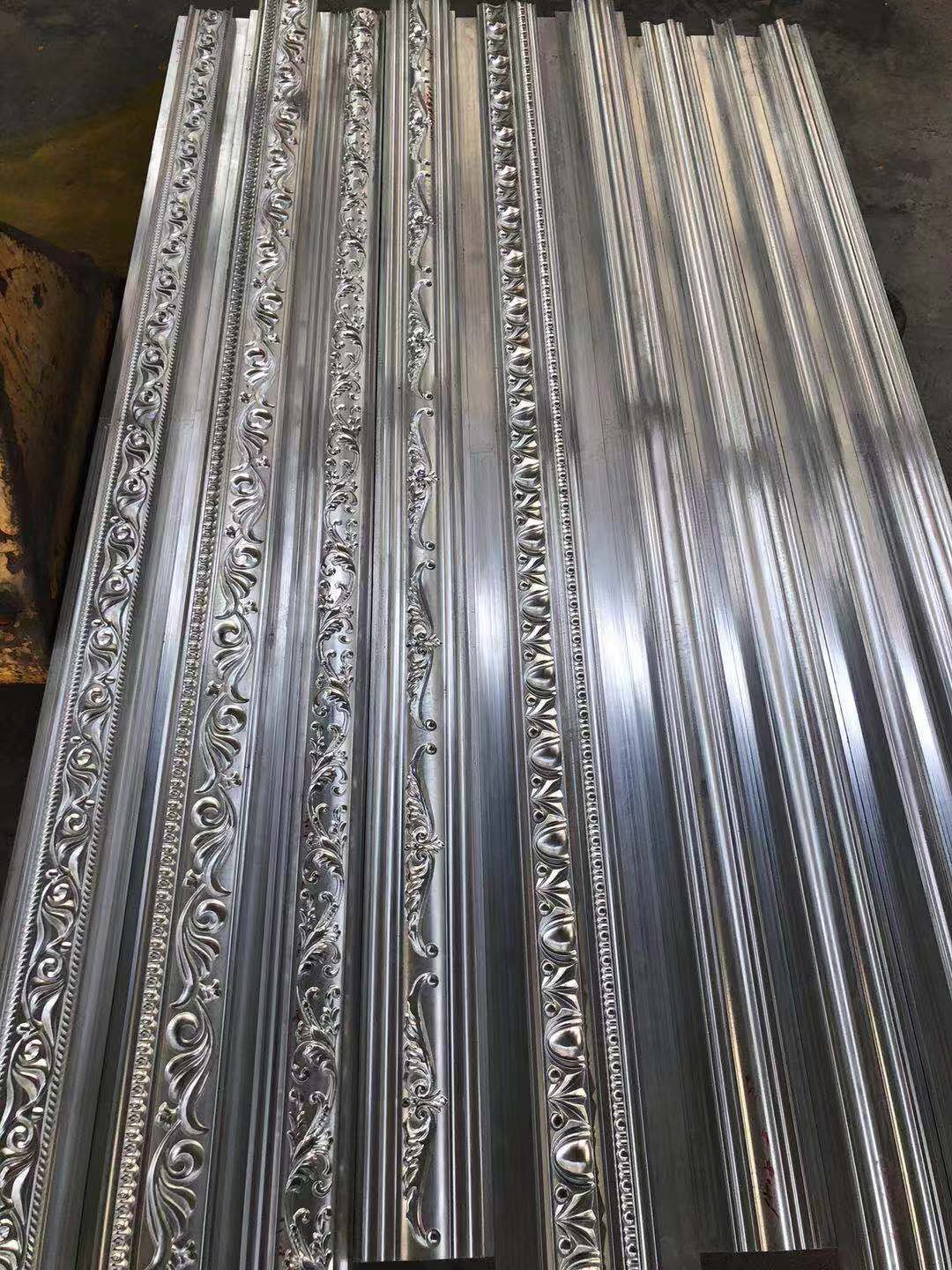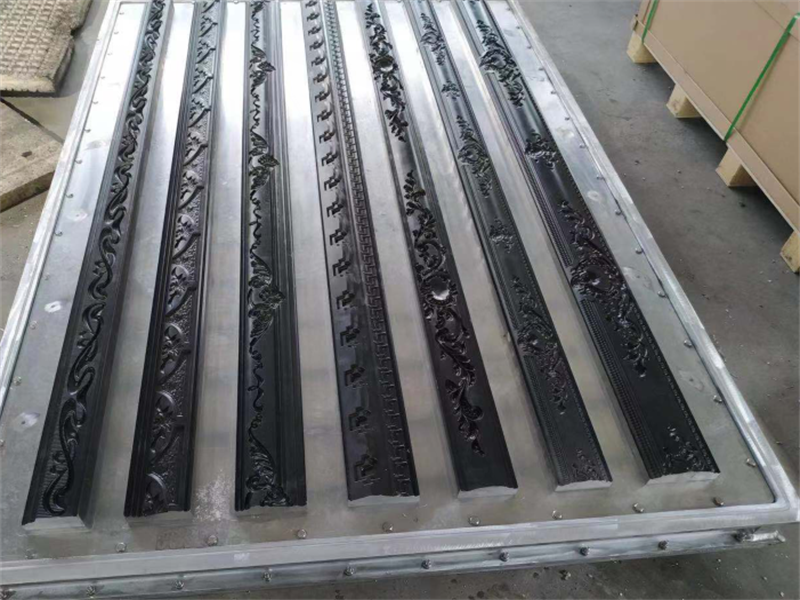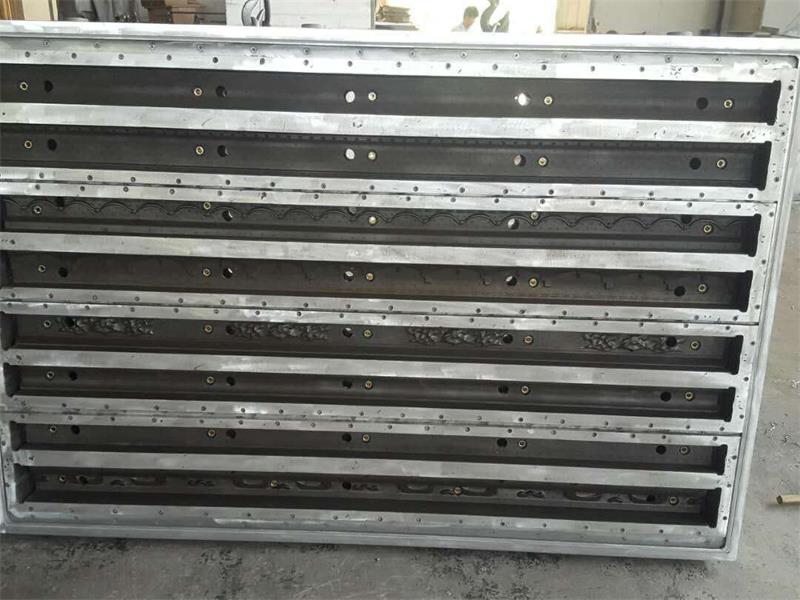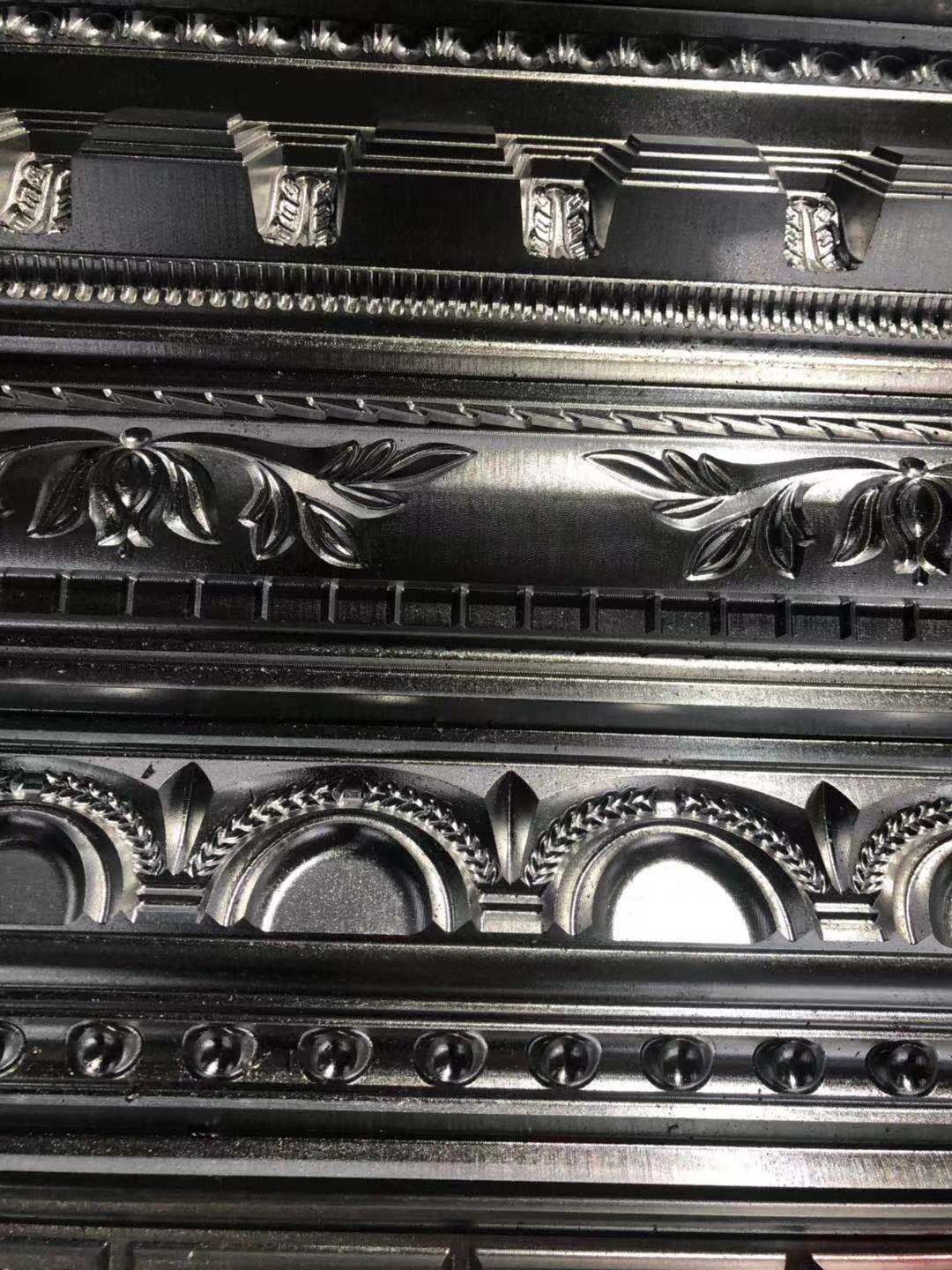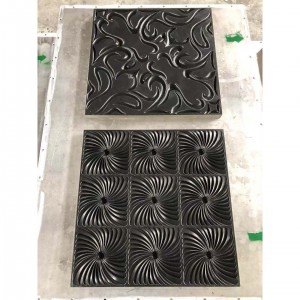Factory Direct EPS Aluminum Mould for Precision Shaping
Product Main Parameters
| Parameter | Value |
|---|---|
| Material | High-quality Aluminum |
| Frame Material | Extruded Aluminum Alloy Profile |
| Plate Thickness | 15mm |
| Moulding Process | Fully CNC Machined |
| Steam Chamber Size | 1200*1000mm, 1400*1200mm, 1600*1350mm, 1750*1450mm |
Common Product Specifications
| Specification | Detail |
|---|---|
| Mould Size | 1120*920mm, 1320*1120mm, 1520*1270mm, 1670*1370mm |
| Patterning | Wood or PU by CNC |
| Packing | Plywood Box |
| Delivery Time | 25-40 Days |
Product Manufacturing Process
The manufacturing of EPS products using our advanced Aluminum Moulds involves a sequence of critical processes. Initially, EPS beads undergo pre-expansion via steam, transforming them into lightweight foam beads. Following this, the beads stabilize through aging; this step is vital for equilibrating internal pressure, thus enhancing the material's physical properties. During the moulding stage, pre-expanded beads are filled into the aluminum mould where steam is reapplied. The characteristics of aluminum, notably its thermal conductivity, ensure even heat distribution, prompting uniform expansion and fusion of the beads into the desired shape. Finally, cooling solidifies the product for ejection from the mould. These steps, founded on established manufacturing research, underscore the importance of precision and consistency in delivering high-quality EPS products.
Product Application Scenarios
EPS Aluminum Moulds are pivotal in numerous industrial sectors. In packaging, they facilitate the creation of protective, lightweight yet robust materials, crucial for safeguarding goods during transit. The construction industry benefits from EPS products' unrivaled thermal insulation properties, thereby improving energy efficiency in buildings. Additionally, in the automotive and consumer goods sectors, EPS parts are valued for their lightweight and durable nature, contributing to vehicle efficiency and product longevity. These application scenarios, backed by authoritative studies, demonstrate the moulds' versatility and essential role across diverse markets.
Product After-Sales Service
- Comprehensive technical support and guidance
- Troubleshooting assistance
- Replacement and repair options
- Regular maintenance tips and updates
Product Transportation
Our EPS Aluminum Moulds are securely packaged in plywood boxes to prevent damage during transit. We ensure timely delivery within 25-40 days, depending on the destination. Our logistics team coordinates with reliable carriers to provide tracking and updates throughout the shipment process.
Product Advantages
- High precision and detailed molding capabilities
- Superior thermal conductivity for efficient production
- Durability leading to longer lifespan
- Corrosion-resistant, ideal for various environments
Product FAQ
- What materials are used in the mould?
The moulds are made from high-quality aluminum with extruded aluminum alloy profiles, ensuring durability and precision.
- What sizes are available for EPS Aluminum Moulds?
We offer a range of sizes including 1120*920mm, 1320*1120mm, 1520*1270mm, and 1670*1370mm to meet different production needs.
- How long is the delivery time for these moulds?
Standard delivery takes between 25 to 40 days, depending on your location and specific order requirements.
- Can these moulds be customized?
Yes, we offer customization services to match client specifications and capacity requirements.
- How do these moulds improve production efficiency?
The excellent thermal conductivity and precision of our moulds allow for faster cycle times and higher production accuracy.
- Are the moulds resistant to corrosion?
Yes, our aluminum moulds naturally resist corrosion due to the formation of a protective oxide layer.
- What industries use these EPS moulds?
Industries such as packaging, construction, and automotive utilize these moulds for creating various EPS products.
- What is the thickness of the aluminum plates used?
The aluminum alloy plates are 15mm to 20mm thick, depending on the specific mould design.
- Is technical support available after purchase?
Yes, we provide comprehensive technical support and after-sales services to assist with any issues.
- How are the moulds packaged for transportation?
Each mould is carefully packed in a robust plywood box to ensure safe transport.
Product Hot Topics
- Efficiency in EPS Manufacturing with Aluminum Moulds
Incorporating factory-made EPS Aluminum Moulds can significantly boost precision and efficiency in EPS production. The superior thermal properties of aluminum enable faster and more consistent moulding cycles, which in turn can lead to increased production capacity. This efficiency is particularly beneficial for high-volume production settings, where time savings translate directly into cost savings. Additionally, the durability of these moulds means they maintain their precision over long periods, further contributing to the overall efficiency and cost-effectiveness of the EPS manufacturing process.
- The Importance of Corrosion Resistance in Industrial Moulds
Corrosion resistance is a critical factor in the longevity of manufacturing equipment, and EPS Aluminum Moulds excel in this regard. Aluminum's natural ability to form a protective oxide layer makes it particularly well-suited for environments where moisture and other corrosive elements are present. This resistance not only extends the lifespan of the moulds themselves but also ensures consistent quality in the products they create. By preventing corrosion, manufacturers can avoid downtime for repairs and replacements, maintaining continuous productivity in their factories.
- Customization in EPS Moulding: Meeting Diverse Industry Needs
One of the standout features of our factory-produced EPS Aluminum Moulds is their ability to be customized to meet the unique specifications of various industries. Whether producing intricate shapes for packaging or large panels for construction, customization ensures that each mould fits the precise needs of the client. This flexibility not only enhances the quality of the end product but also allows manufacturers to enter new markets with confidence, knowing they can meet specific requirements without compromising on performance.
- The Role of Thermal Conductivity in Mould Performance
Thermal conductivity plays a pivotal role in the performance of EPS manufacturing moulds. Aluminum's superior thermal properties facilitate even heat distribution across the mould, which is essential for the uniform expansion of EPS beads. This results in consistently high-quality products with fewer defects. In a factory setting, the ability to maintain consistent product quality is crucial for both customer satisfaction and brand reputation. As such, investing in moulds with excellent thermal conductivity is a strategic decision for any EPS manufacturer.
- Advancements in CNC Machining for EPS Mould Precision
The use of CNC machining in manufacturing EPS Aluminum Moulds represents a significant advancement in production precision. CNC machining ensures that every mould produced is consistent in its dimensions and features, minimizing errors and increasing the accuracy of the final EPS products. This level of precision is particularly important in industries where specifications are strict, such as automotive and consumer goods. By employing advanced CNC techniques, factories can deliver products that meet or exceed industry standards, ensuring customer satisfaction.
- EPS Moulds: Balancing Durability and Weight
Aluminum is often chosen for EPS mould production due to its excellent strength-to-weight ratio. This balance allows the moulds to withstand the rigors of the manufacturing process while remaining manageable in terms of installation and handling. Lighter moulds are easier to maneuver, reducing labor costs and time during setup and maintenance. Furthermore, their durability ensures that they provide long-term service without degrading, making them a cost-effective choice for factories looking to optimize their moulding operations.
- Impacts of EPS Moulds on Sustainable Manufacturing
Sustainability in manufacturing is increasingly important, and EPS Aluminum Moulds contribute positively to this goal. Their durability means less frequent replacement and lower material waste, while their efficiency in processing can lead to decreased energy usage. Furthermore, the ability to recycle aluminum adds another layer of sustainability, making these moulds an environmentally responsible choice. Manufacturers looking to reduce their carbon footprint will find EPS Aluminum Moulds align with modern sustainability objectives.
- Enhancing Product Quality with EPS Factory Solutions
Implementing factory-direct EPS Aluminum Moulds can significantly enhance the quality of products. The precision engineering of these moulds ensures that each product comes out with the exact dimensions and features required, reducing waste and increasing reliability. This quality control is a key differentiator in competitive markets, where consistent excellence can set a brand apart. By investing in high-quality moulds, manufacturers can cement their reputation for producing top-tier EPS products.
- Future Trends in EPS Mould Design and Use
As technology advances, the design and use of EPS moulds are evolving. Future trends are likely to focus on further improving material efficiency, reducing cycle times, and enhancing the customization capabilities of moulds. These developments aim to better serve the diverse needs of industries and meet the growing demand for EPS products worldwide. Manufacturers who stay ahead of these trends by adopting innovative mould solutions will be well-positioned to lead in the EPS market.
- How EPS Aluminum Moulds Promote Cost Savings
Although the initial investment in EPS Aluminum Moulds may be higher than other materials, their long-term benefits result in significant cost savings. Their durability means a longer useful lifespan, reducing the need for frequent replacements. Additionally, the efficiency they bring to the moulding process can lower operational costs through reduced energy consumption and faster production cycles. For manufacturers, these savings can be redirected into other areas of the business, such as innovation and expansion.
Image Description
